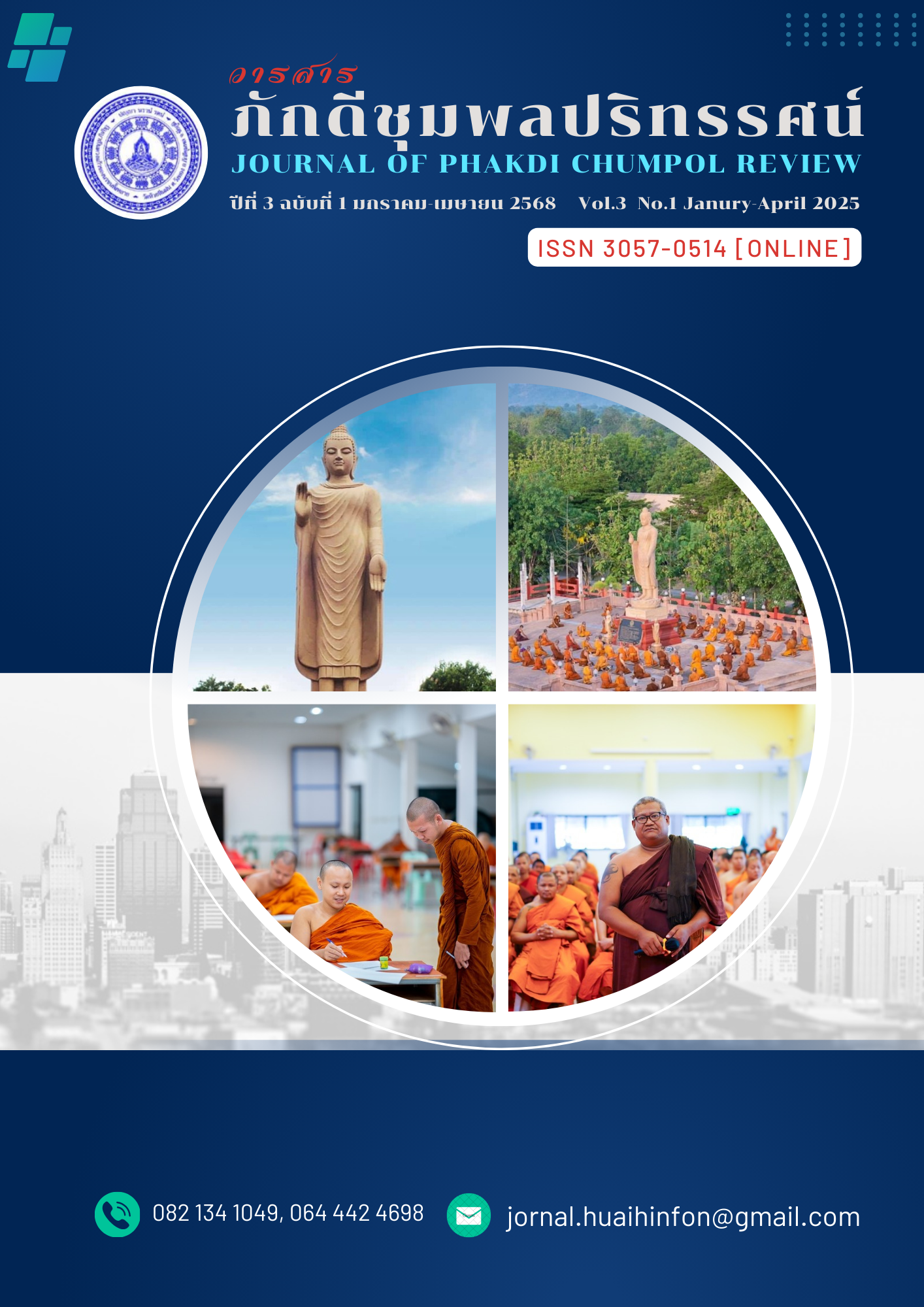Political socialization According to Buddhism of Secondary school students
Keywords:
Political socialization, According to Buddhism, Secondary school studentsAbstract
This article aims to study political socialization according to Buddhism among secondary school students. It was found that: The process of political socialization is considered a part of the socialization process that continues throughout the life of an individual. People of all genders and ages must always interact with political learning, both consciously and unconsciously. which political learning has its roots since childhood Because what is learned and formed early in life will affect political attitudes and subsequent political behavior at each age. The education system is considered an important socialization process that molds people in that society to have various ideas, beliefs, and attitudes. According to that society Want or what society desires.
Political socialization according to Buddhism among secondary school students has five aspects as follows: 1) As for family institutions according to Sangahavatthudhamma, the students should follow political news through various sources and media outlets and participate in political activities. 2) As for educational institutions according to Sangahavatthudhamma, the students should join to have political activities and they should be taught about politics and government. 3) As for community and peer groups according to Sangahavatthudhamma, the students should have the interest in and follow political news. 4) As for religious institutions according to Sangahavatthudhamma, the students should be indoctrinated and trained to adhere to righteousness, goodness and neutrality. 5) As for political institutions according to Sangahvatthudhamma, the students should receive the transmission of ideas, beliefs, values and political ideologies.
References
มหาจุฬาลงกรณราชวิทยาลัย. (2539). พระไตรปิฎกภาษาไทย ฉบับมหาจุฬาลงกรณราชวิทยาลัย. กรุงเทพมหานคร : โรงพิมพ์มหาจุฬาลงกรณราชวิทยาลัย.
จันทรานุช มหากาญจนะ. (2560). การเมืองเปรียบเทียบ. พระนครศรีอยุธยา : โรงพิมพ์รัตนไตร.
ชรินทร์ สันประเสริฐ. (2543). ระบบการเมืองการปกครอง 1. เอกสารการสอนชุดวิชามนุษย์กับสังคมหน่วยที่ 4. นนทบุรี : มหาวิทยาลัยสุโขทัยธรรมาธิราช.
บรรจง กลิ่นสงวน. (2547). “การกล่อมเกลาทางการเมืองและทัศนคติทางการเมืองแบบประชาธิปไตยของนิสิตระดับปริญญาตรี คณะสังคมศาสตร์ มหาวิทยาลัยเกษตรศาสตร์”.วิทยานิพนธ์ศิลปะศาสตรมหาบัณฑิต สาขาวิชารัฐศาสตร์. บัณฑิตวิทยาลัย : มหาวิทยาลัยเกษตรศาสตร์.
ปรีชา ธรรมวินทร. (2532). “การกล่อมเกลาทางการเมืองโดยผ่านหนังสือเรียน : วิเคราะห์หนังสือเรียนหลักสูตรประถมศึกษาพุทธศักราช 2521”. วิทยานิพนธ์รัฐศาสตรมหาบัณฑิต สาขาวิชารัฐศาสตร์. บัณฑิตวิทยาลัย : มหาวิทยาลัยธรรมศาสตร์.
พุทธทาสภิกขุ. (2532). บริหารธุรกิจแบบพุทธ. กรุงเทพมหานคร : อตัมมโย.
พระมหานรินทร์ สุรปญฺโ. (2566). เอกสารคำสอนหลักรัฐศาสตร์. พิมพ์ครั้งที่ 2. กรุงเทพมหานคร : บริษัท ดีเซมเบอรี่ จำกัด.
วิชัย ตันสิริ. (2539). วัฒนธรรมทางการเมืองและการปฏิรูป. กรุงเทพมหานคร : บริษัทสุขุมและบุตรจำกัด.
ศุภวัฒน์ โพธิ์เจริญ. (2547). “การกล่อมเกลาทางการเมืองของนักศึกษามหาวิทยาลัยพายัพ จังหวัดเชียงใหม่”. วิทยานิพนธ์รัฐศาสตรมหาบัณฑิต สาขาวิชาการเมืองและการปกครอง. บัณฑิตวิทยาลัย : มหาวิทยาลัยเชียงใหม่.
สุทธิพงศ์ ปานเพ็ชร์. (2550). “การประยุกต์หลักพุทธธรรมกับวิถีชีวิตชุมชน”. รายงานการวิจัยอิสระ. บัณฑิตศึกษา : มหาวิทยาลัยธุรกิจบัณฑิตย์.
สมพงศ์ เกษมสิน และจรูญ สุภาพ. (2520). ลัทธิการเมืองและเศรษฐกิจเปรียบเทียบ. กรุงเทพมหานคร : ไทยวัฒนาพาณิช.
Almond G.A. and Verba S. (1965). The Civic Culture. Boston: Little Brown and Company.
Almond Gabriel A. and Powell G. Bingham Jr. (1980). Comparative Politics Today A World View. Boston: Little brown.
Michael Rush and Phillip Athoff. (1971). Introduction to Political Sociology. London: Western Printing Serviced Press.




